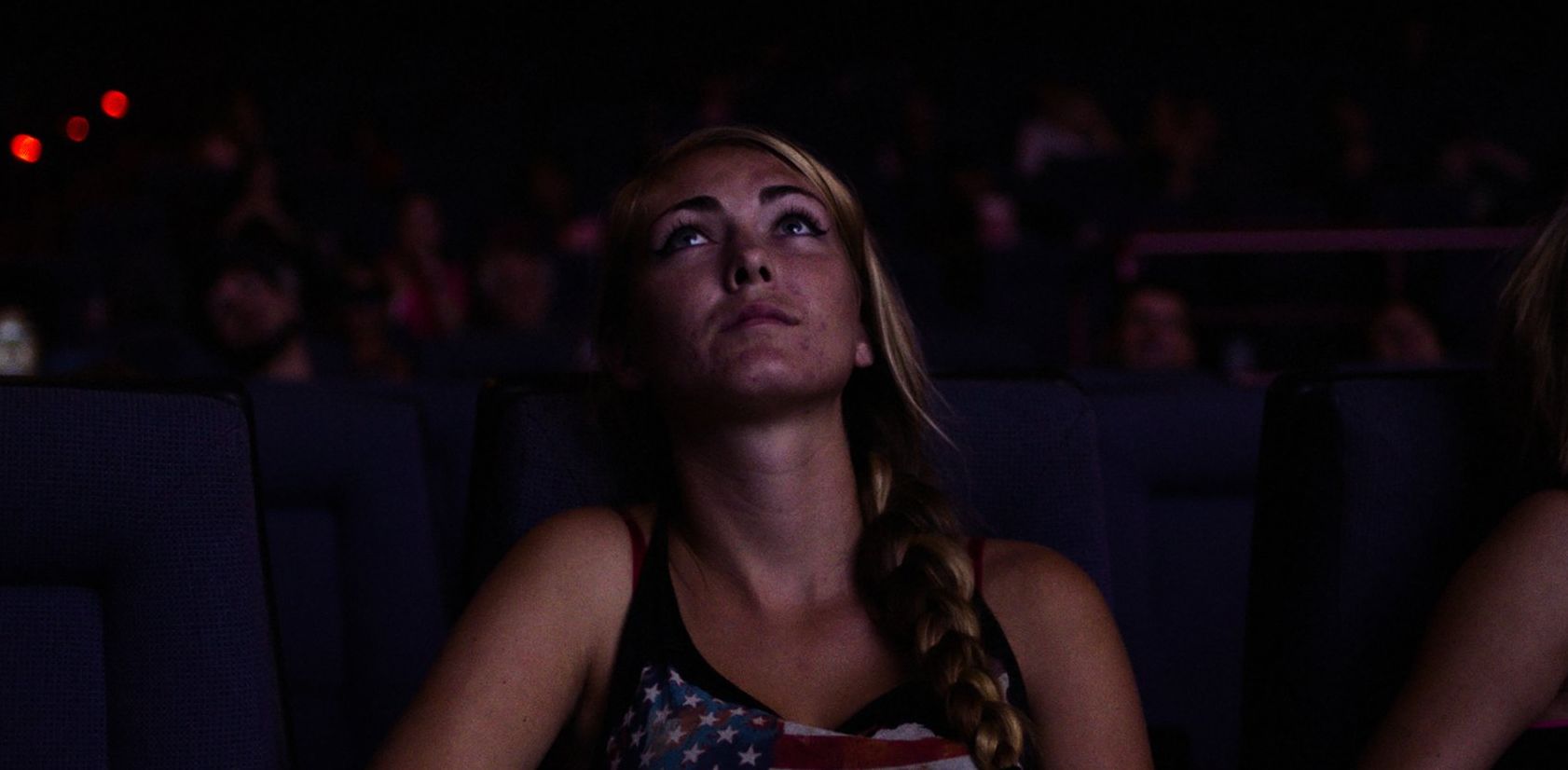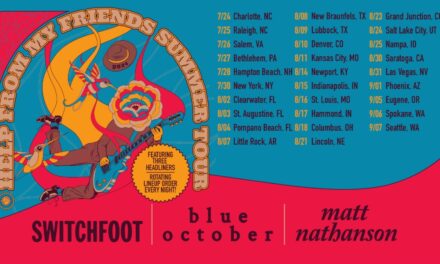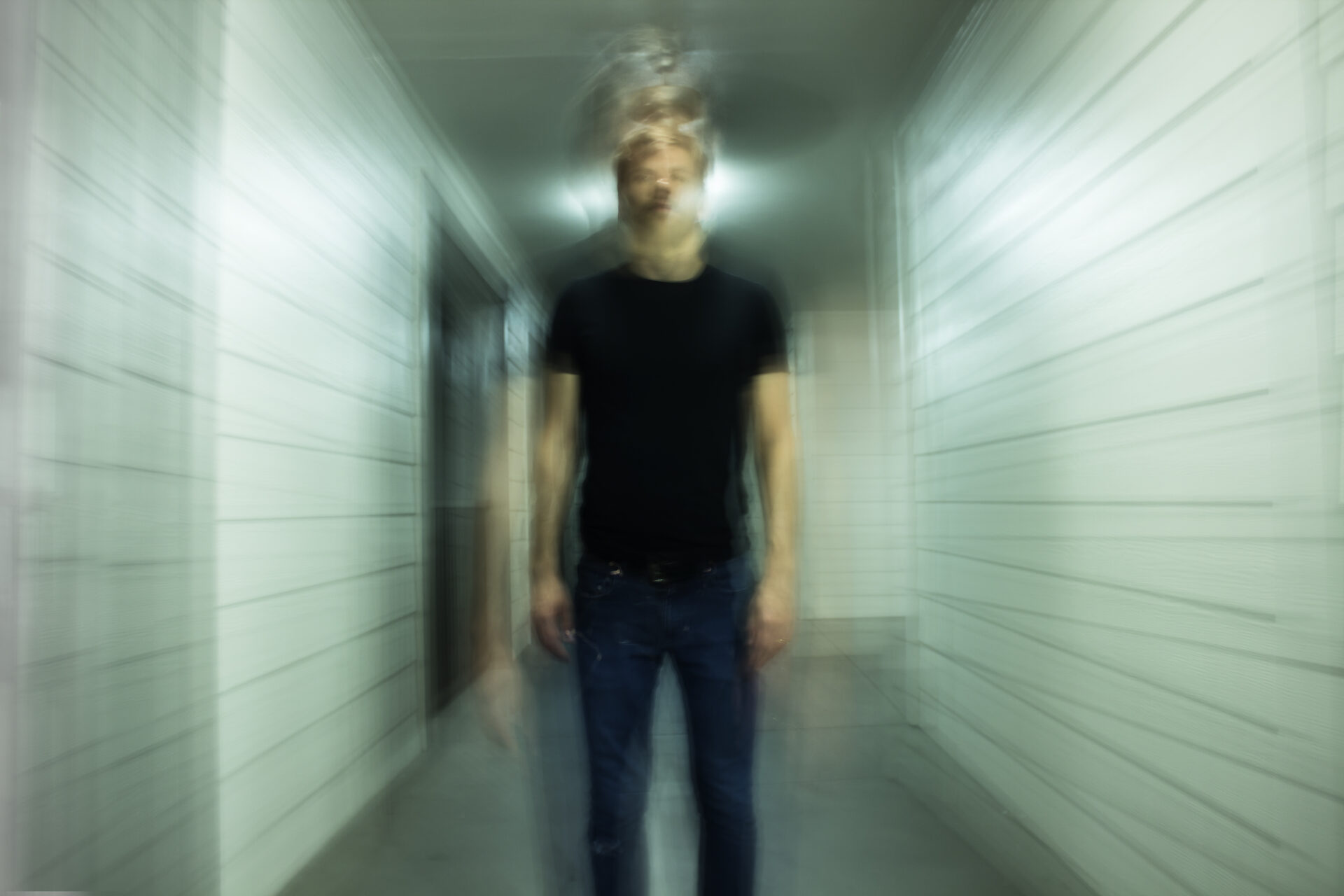To classify Tim Sutton’s Dark Night as an elegy for America may be a bit of an overdramatization, but the third feature from the New York-based filmmaker does convey an undeniable sense of sadness and unease about the current state of the nation that may hit a little too close to home for many viewers. It is more of a visual poem than a traditional narrative, as his been the case with all of Sutton’s work, and it marks a grim turn for the undeniably unique storyteller.
Dark Night is inspired by the 2012 Aurora, Colorado massacre perpetrated by James Holmes during an opening night screening of The Dark Knight Rises. The crime, which shocked the nation, left 12 dead and 70 injured. Sutton’s film revolves around a fictional event happening in the wake of that shooting in suburban Florida, but never shows the crime in question. Instead, the majority of the film’s 85-minute runtime quietly follows the lives of six strangers who inevitably all end up going to the same theater during the third act. One of them may even be the killer, but Sutton is in no rush to reveal the characters’ motivations or plans.
Read more: Get The Girl is a brutal, wickedly fun tale of unrequited love
In fact, Sutton doesn’t reveal much at all. His characters lead largely boring lives, and that is kind of the point. Whether it’s the Army vet who only finds comfort in cleaning his gun, the young man dealing with unrequited love, or the outspoken teenager who is currently rebelling against the world and his parents because he believes society is all a big lie, the one common thread connecting the characters in Dark Night is the fact that they live out Thoreau’s famous quote regarding people who ‘lead lives of quiet desperation.’ For these characters, the dream they were sold never arrived. There is a communal element of disenfranchisement that is palpable largely due to the fact that the lives of everyone on screen are inseparable from our own reality. Talk of being misled in life is coupled with sequences of empty-eyed gazes at television screens flickering with headlines about a world slowly beginning to come apart. The architecture of society is all around, but the streets are largely empty and no one makes much, if any, noise.
Anyone who has seen 2012’s Pavillion or 2013’s Memphis will immediately recognize the wispy, yet alluring narrative structure of Dark Night. Sutton approaches each of his six characters as if he and the audience were flies on the wall. It’s the kind of decision that could make the world feel cold, but instead it creates a sense of uncertainty that slowly intensifies as the sun begins to set. Sutton goes to great lengths to make us question our thoughts about each character, forcing us to rethink our own preconceived notions of people over and over, but he stops short of being so vague that he loses our interest.
That said, there is no denying Sutton’s work is not something the average moviegoer is likely going to seek out on date night. What some will view as poetic and meaningful others will no doubt see as boring and plotless. To say there is a clear arc of any kind would be a lie. This is more of a slow incline that weaves a visually compelling series of character studies toward a climax that doesn’t arrive in the way you’d expect a movie about a theater shooting to end. It’s not a bang as much as it is a whisper. In fact, there is no bang at all.
Read more: Paterson is Jim Jarmusch’s poetry in motion
Dark Night is not a whodunnit as much as it is a commentary on our relationship with one another and the world around us. It goes beyond the timeless lesson of fiction that any day could be the greatest or worst day of your life and implores us to consider the fact that there are limits to understanding the motivations behind individual decisions. The random events of a single person’s life that drives them to behave and think the way they do on any given day is impossible to predict and anticipate. We can rely on the forces of good will and kindness to keep us safe through community and structure, but there will always be random acts of violence we are unable to understand until long after they have come to pass—if ever at all.
If Sutton is saying anything here it seems to be that everyone and everything could use a little more compassion, and I have to say I agree. You might not need to see Dark Night to agree as well, but if you skip it you will be denying yourself a uniquely engaging and thoroughly satisfy cinematic experience.













